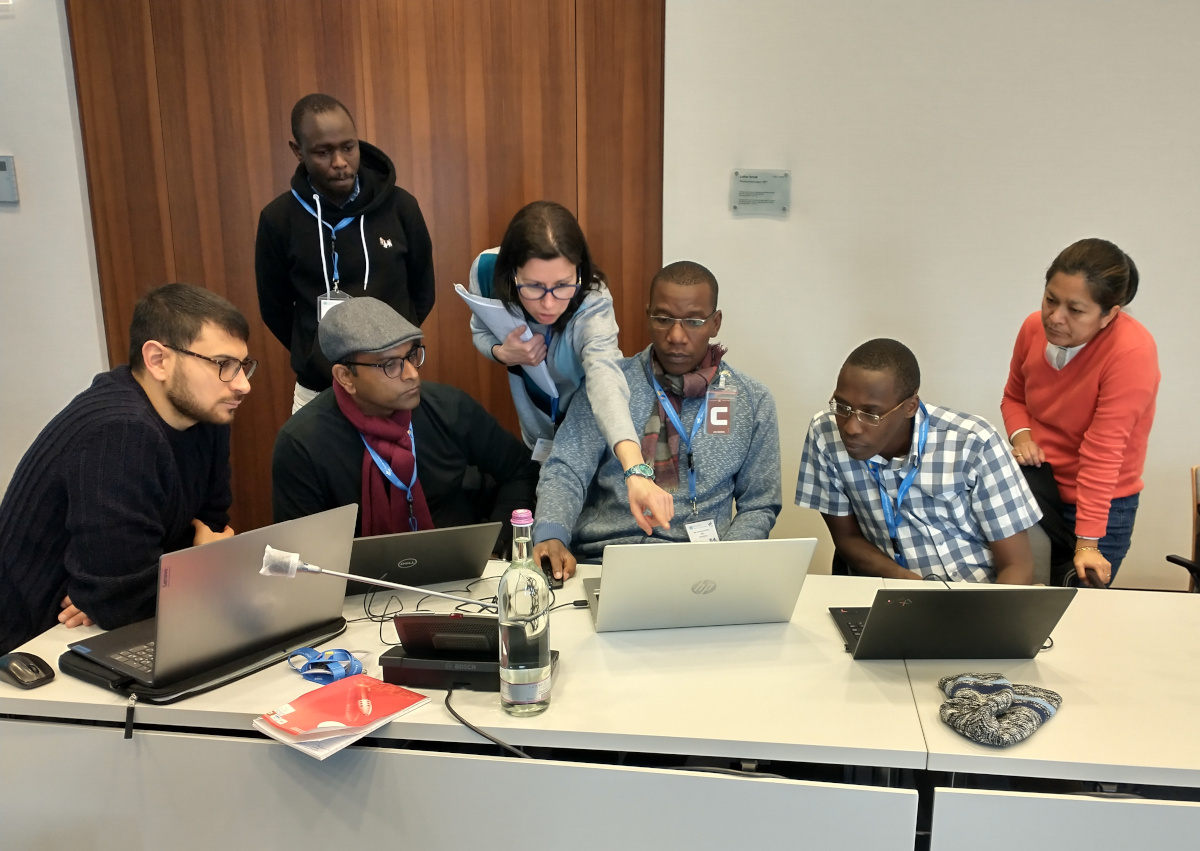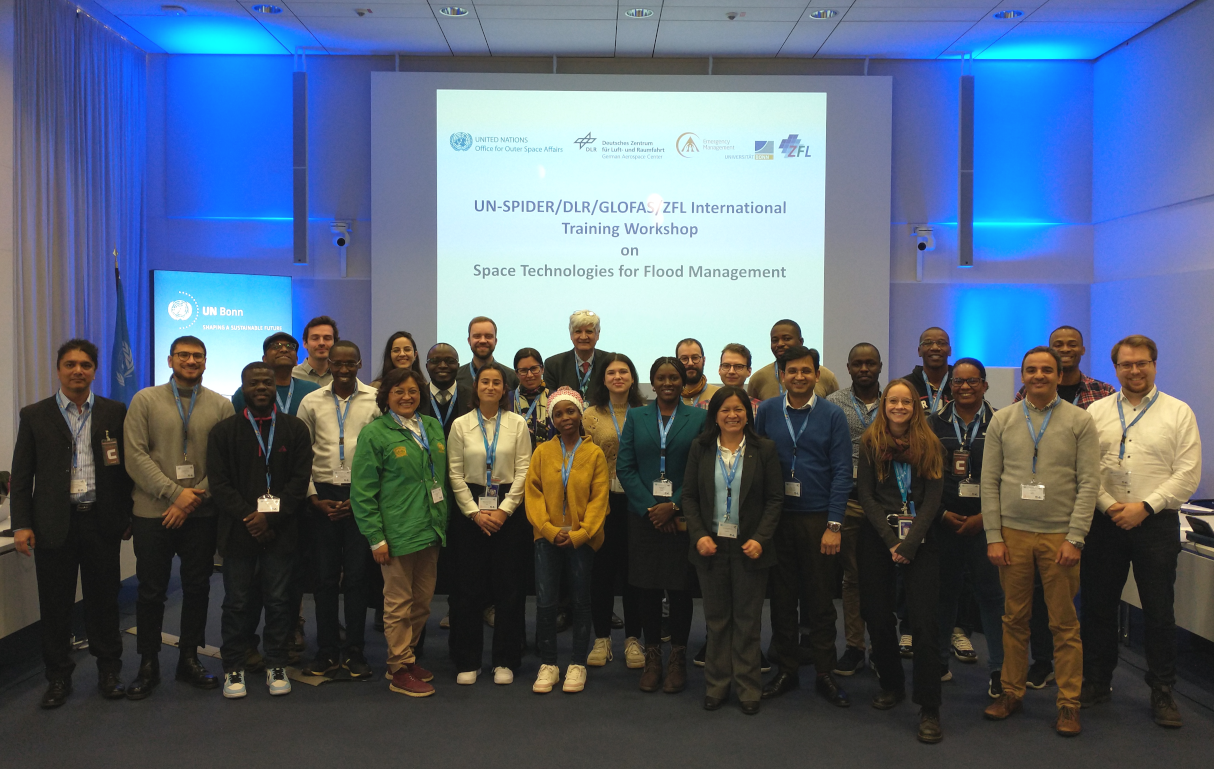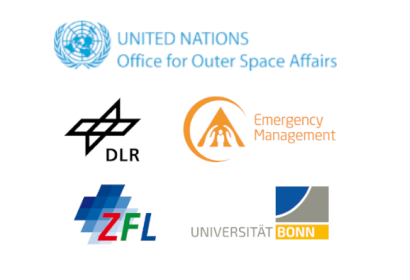The United Nations Platform for Space-based Information for Disaster Management and Emergency Response (UN-SPIDER) in collaboration with the German Aerospace Centre (DLR), the Global Flood Awareness System (GLOFAS) of the Copernicus Programme of the European Commission, and the University of Bonn’s Centre for Remote Sensing of Land Surfaces (ZFL), conducted an international training workshop on space-based technologies for flood management. The workshop was held at the UN Bonn Campus on 20-22 February 2023.
The workshop had an impressive turnout of nearly 30 attendees, including representatives from national disaster management agencies, space agencies, government agencies, and students enrolled in universities from various countries including Algeria, Barbados, Germany, Ghana, Italy, Kenya, Mexico, Mozambique, Nigeria, Pakistan, South Africa, Spain, Sri Lanka, Turkey, Uganda, and the United Kingdom.
The event aimed to increase the awareness of and developing skills of novel techniques and tools developed by DLR, the Copernicus Programme, and UN-SPIDER, which are useful in flood management.
The workshop commenced with opening remarks by representatives from UN-SPIDER, ZFL, GLOFAS, and DLR. During the training, participants gained knowledge by developing practical skills in geospatial information technologies and Earth observation in two sessions using GLOFAS and rapid flood mapping tools. Additionally, a simulation was conducted to allow participants to apply and test the skills they had acquired throughout the training.

Apart from the training, the workshop provided an opportunity for young professionals to network with each other and share ideas and best practices in disaster management. The participants left with valuable insights and perspectives on space-based technologies and their applications in flood management.
Some of these training activities are available in the Recommended Practices of UN-SPIDER's website, for self-paced education and exploration:
- Recommended Practice: Flood Mapping and Damage Assessment Using Sentinel-1 SAR Data in Google Earth Engine
- Recommended Practice: Radar-based Flood Mapping using Python


